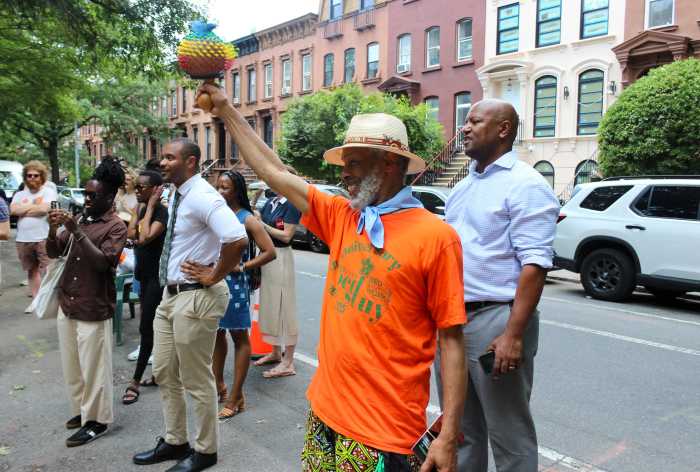A powerful coalition of landowners and developers has formed to battle a proposal to designate the Gowanus Canal a Superfund site, a plan they warn could stifle the area’s hard−fought progress.
Opponents say the designation — reserved for the country’s most polluted sites — will be the death knell to private development in a region that has over the past decade attracted considerable interest.
“We are convinced that a Superfund listing will result in decades of analysis, litigation, and then more analysis and more litigation,” said David Von Spreckelsen, a senior vice president with Toll Brothers, which is planning a 605,380−square−foot development with 477 residential units on two city blocks bounded by the canal, Bond Street, 2nd Street, and Carroll Street.
Created in 1980, the Superfund program shifts a site’s clean−up costs from the public’s pocketbook to those responsible for the pollution. Locating the multiple polluters responsible for the Gowanus’ woes — and forcing them to pay for the clean−up — could result in legal wrangling spanning years, critics argue.
“The empirical evidence clearly shows that waterways with multiple polluters like the Gowanus Canal that have been placed on the [Superfund] National Priorities List have stagnated for decades,” Von Spreckelsen said. “The Hudson and Passaic Rivers were each listed in the early 1980s and their clean−ups have not even commenced. I don’t see how the Gowanus would be any different.”
The coalition includes Hudson Companies, the Bluestone Organization, and the Fifth Avenue Committee — a trio that is part of the development team for Gowanus Green, the $300 million project on the 5.8−acre site known as Public Place, located at the corner of Smith and Fifth Streets. The project calls for the construction of 774 units of housing in nine buildings whose heights will range from six to 12 stories.
Other members, Von Spreckelsen said, include Bayside Fuel, Jobco, Africa Israel, the Jewish Press, and Issac Katan, principal of the Katan Group. Activist Salvatore “Buddy” Scotto, the founder of the Carroll Gardens Association, and the Gowanus Canal Community Development Corporation, is also a member of the coalition, as is his daughter, local developer Debra Scotto.
“This has the net effect of condemning this area for decades,” Debra Scotto said. “There is most definitely a stigma. There will be no development here for decades,” she said. “This is a disaster.”
Von Spreckelsen said the real issue to deal with along the canal is the raw sewage that often fouls the waterway, and not the polluted sediment, which the Environmental Protection Agency wants to address instead of the sewage. “The sediment is not a threat to public health and safety,” he said. “Let sleeping dogs lie.”
He said the coalition is in frequent contact with local elected officials on the matter, hoping to sway opinion. City Councilmember Bill de Blasio and the mayor both oppose the Superfund designation. The city is in the process of crafting an alternative clean−up plan.
But Rep. Nydia VelÁzquez said the city’s involvement with the Gowanus Canal “has left much to be desired in recent years.”
“I am glad they are beginning to recognize the seriousness of the problem,” she continued. “Complete clean−up should be the number one priority. Until the city can prove that they can raise the necessary funds and enter into agreements with the responsible parties, Superfund would be the most logical option.”






















